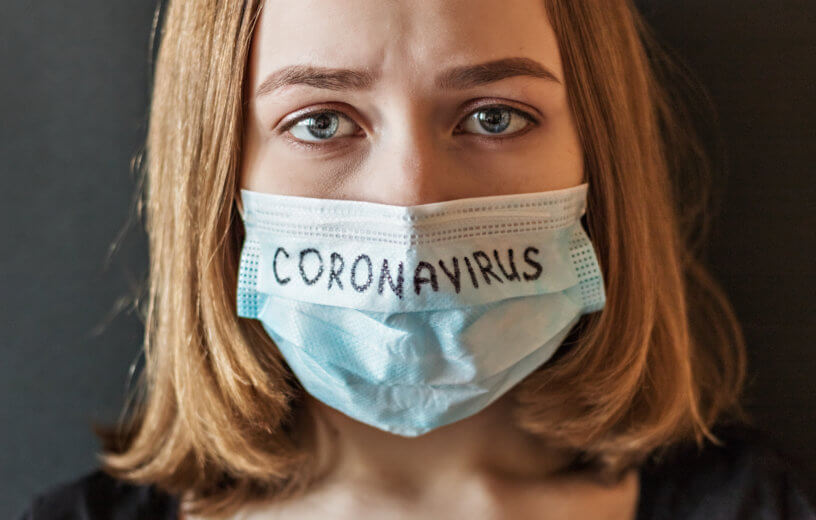ORANGE, Calif. — The novel coronavirus is among the top health concerns for most, if not all of society in 2020. Its effects and implications extend far beyond just physical health, though. COVID-19 has changed virtually all aspects of life for Americans. An extensive new survey reveals how the pandemic is influencing Americans’ mental health, relationships, and encounters with discrimination or prejudice.
Put together by Chapman University, the survey includes 4,149 adults living in the United States and was conducted at the end of April.
High stress, poor diet quality
Some of the survey’s findings were fairly predictable. For example, 89% of Americans are staying home more often than usual. Moreover, 61% feel more stressed, 60% more anxious, and 45% are more depressed or hopeless. Many Americans have also seen their healthy habits take a big hit during the pandemic. For example, 37% say they’re eating more because of all that stress, and 41% are eating more junk food specifically. Another 35% admit they aren’t exercising as much as they did in 2019.
“As a nation, we have focused a lot of attention on the physical health risks of COVID-19 and not nearly as much on the mental health,” says research leader David Frederick, Ph.D., an associate professor of health psychology at Chapman University, in a release. “We know from past research that natural disasters, epidemics and chronic stressors all harm our mental health, but what we’re experiencing now is radically different than any of those previous experiences. The scale is so much larger.”
Upsettingly, the research also reveals that Americans currently working public-facing jobs (grocery store clerks, delivery drivers, restaurant employees) are suffering from poor mental health, anxiety, and loneliness more frequently than other groups right now. This group also reports more bouts of flu-like symptoms.
Over half of Americans (54%) are still “very concerned” about catching COVID-19. But, 42% say they don’t think they’re at a high risk of contracting the coronavirus. Surprisingly, essential workers, healthcare professionals, and police officers all mostly indicate that they aren’t any more worried about catching the coronavirus than other groups.
COVID-19 relighting romantic flame for couples?
Of those surveyed, 2,702 people report being in a long-term romantic relationship. Among that group, 64% say they’ve been spending more time with their partner. The average couple during this pandemic has snuggled four times and said “I love you” six times just over the past week. Some couples are fighting less during lockdown (24%) while others bicker more (25%).
“Most people are spending more time with their romantic partner. For some couples, the silver lining is that they are getting to connect with their partner. For others, staying home together allows little stressors to build and blow up which then promotes conflict over existing disagreements,” Frederick explains.
As far as sex, 31% agree that lockdown has made them want to have sex with their partner more often. Conversely, 22% say that they’re less interested in sex. Only 19% of participants are actually having more sex right now.
Viruses don’t discriminate, but people do
Regarding discriminatory experiences, 32% of surveyed Asian Americans and 38% of surveyed Chinese Americans said they’ve dealt with at least one racial incident since the pandemic started. In fact, 25% of Chinese Americans have experienced three or most racist incidents over the past few months. Examples of such incidents include name calling, racial slurs, being told to “go back to your country,” and even being physically threatened.
African Americans have also had to deal with more racist experiences lately as well; 26% have had at least one negative racial experience and 21% have experienced three or more. No matter the person’s race, such incidents are linked to greater feelings of anxiety, depression, loneliness, and hopelessness.
“I am troubled by these findings,” says Jason Douglas, Ph.D., assistant professor of public health at Chapman and one of the survey’s researchers. “We need clear and consistent messaging to indicate that viral pandemics do not stem from our ethnocultural minority communities. Rather, residents living in disadvantaged, ethnocultural minority communities are at greater risk for COVID-19 related morbidity and mortality due to longstanding systemic inequities that unfairly limit access to health-protective resources.”
How Americans are staying strong, positive
These are stressful times, and the survey shows that Americans are utilizing a number of different coping strategies. Most Americans try to take their mind off the pandemic by gardening, exercising, or watching TV (69%). Close to half (48%) are also doing their best to find some meaning and positivity in the midst of this health crisis.
It was nice to see that 36% of Americans have received comfort from a friend or family member. Almost a third (31%) find strength in their religion.
Perhaps one of the survey’s most telling findings: Americans who have tried making the best out of this pandemic seem to be faring better from a mental health perspective than their neighbors and peers who have turned to temporary solutions like alcohol.
Those interested in participating in the next leg of the survey can do so here.
Like studies? Follow us on Facebook!
